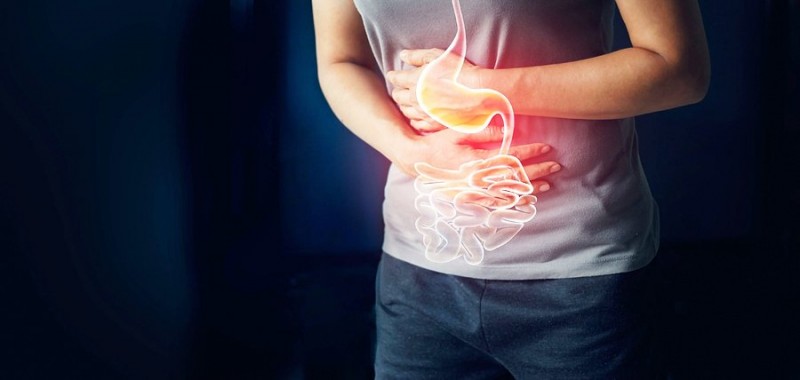Experiencing severe stomach pain at night can be alarming and uncomfortable. While occasional discomfort might not raise immediate concern, persistent or severe pain could indicate underlying health issues that require attention. Ignoring these symptoms may lead to complications or exacerbate existing conditions. Here are six serious diseases associated with severe stomach pain at night that you should not overlook:
1. Gastritis
Symptoms:
- Burning Sensation: A burning or gnawing sensation in the upper abdomen.
- Nausea and Vomiting: Feeling nauseous and vomiting, especially after eating.
- Loss of Appetite: Experiencing a reduced desire to eat.
- Indigestion: Difficulty digesting food, leading to discomfort and bloating.
Causes:
- H. pylori Infection: Helicobacter pylori bacteria can inflame the stomach lining.
- Excessive Alcohol Consumption: Heavy alcohol intake can irritate the stomach lining.
- Chronic Stress: Prolonged stress can increase stomach acid production, leading to inflammation.
2. Gastroesophageal Reflux Disease (GERD)
Symptoms:
- Heartburn: A burning sensation in the chest, often after eating.
- Regurgitation: Sour-tasting fluid backing up into the throat.
- Difficulty Swallowing: Feeling like food is stuck in the throat.
- Chronic Cough: A persistent cough, especially at night.
Causes:
- Weak Lower Esophageal Sphincter: Failure of the muscle that separates the esophagus and stomach.
- Hiatal Hernia: Part of the stomach protrudes into the chest cavity, increasing reflux.
- Obesity: Excess weight can increase pressure on the stomach, contributing to reflux.
3. Peptic Ulcer Disease
Symptoms:
- Burning Pain: Burning or gnawing pain in the abdomen, often between meals and at night.
- Nausea and Vomiting: Feeling nauseous and vomiting blood.
- Unexplained Weight Loss: Losing weight without trying.
- Dark, Tarry Stools: Indicative of gastrointestinal bleeding.
Causes:
- H. pylori Infection: This bacterium can erode the stomach lining, leading to ulcers.
- Nonsteroidal Anti-inflammatory Drugs (NSAIDs): Long-term use of NSAIDs can damage the stomach lining.
- Smoking: Smoking increases stomach acid production and impairs healing.
4. Gallstones
Symptoms:
- Sudden Pain: Intense pain in the upper abdomen or right side of the body, often radiating to the back.
- Nausea and Vomiting: Nausea accompanied by vomiting.
- Jaundice: Yellowing of the skin and eyes.
- Fever and Chills: Fever and chills may indicate an infection.
Causes:
- Cholesterol Buildup: Imbalance in bile components can lead to the formation of gallstones.
- Obesity: Being overweight or obese increases the risk of gallstones.
- Rapid Weight Loss: Losing weight too quickly can contribute to gallstone formation.
5. Irritable Bowel Syndrome (IBS)
Symptoms:
- Abdominal Pain: Cramping or discomfort in the abdomen, often relieved by bowel movements.
- Bloating: Feeling bloated or gassy.
- Diarrhea or Constipation: Alternating between diarrhea and constipation.
- Mucus in Stool: Passing mucus along with stool.
Causes:
- Abnormal Gut Contractions: Disrupted communication between the brain and intestines.
- Inflammation: Low-grade inflammation in the intestines.
- Changes in Gut Bacteria: Alterations in the microbiome can contribute to symptoms.
6. Appendicitis
Symptoms:
- Sudden Pain: Intense pain starting near the navel and migrating to the lower right abdomen.
- Nausea and Vomiting: Nausea accompanied by vomiting.
- Fever: Low-grade fever may develop.
- Loss of Appetite: Reduced desire to eat.
Causes:
- Appendix Blockage: Obstruction of the appendix by stool, foreign bodies, or infection.
- Infection: Bacterial infection of the appendix can lead to inflammation.
- Genetic Factors: Certain genetic factors may increase the risk of appendicitis.
Severe stomach pain at night should not be disregarded, as it could indicate underlying health issues that require medical attention. Ignoring these symptoms may lead to complications or delay in diagnosis and treatment. If you experience persistent or severe abdominal pain, especially accompanied by other symptoms such as vomiting, fever, or changes in bowel habits, it is essential to consult a healthcare professional promptly.
Bharat NCAP gave 5-star safety rating to these Maruti vehicles
Hyundai Tucson is coming in a new avatar, these big changes are making it special
Details of MG Hector Blackstorm Edition leaked before launch, see what is special
